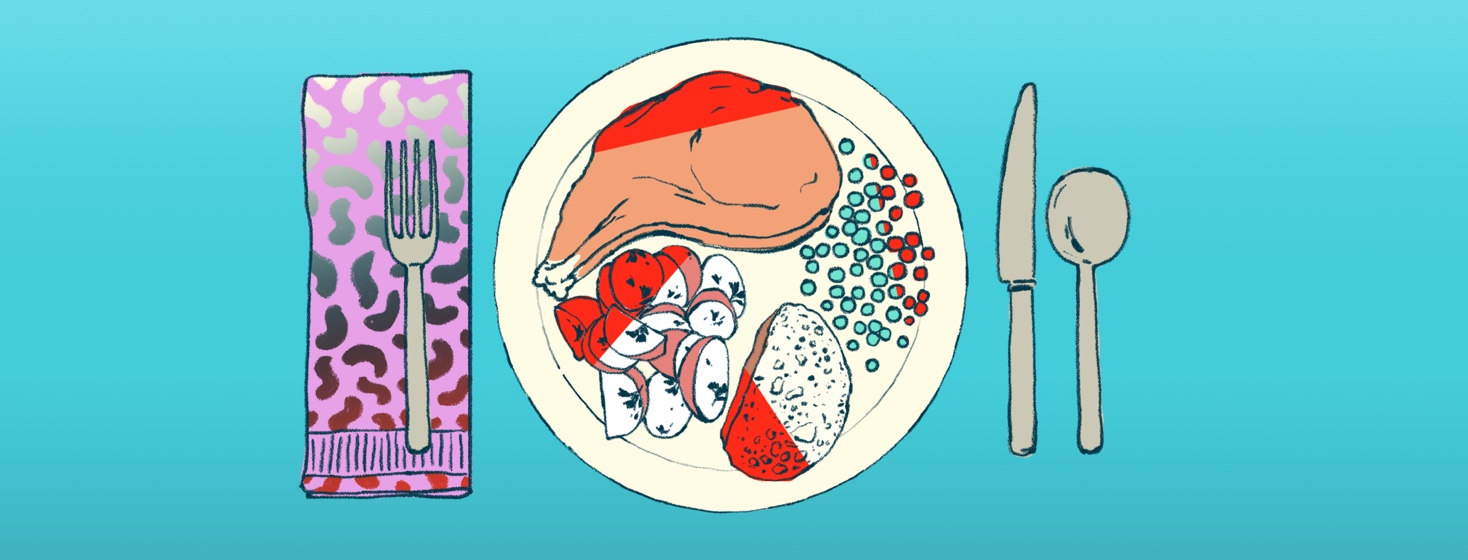Learning My Lesson of Not Eating BIG with IBS
As a kid growing up, I used to always eat big and finish my whole plate. Many times, I would even ask for seconds and finish that whole plate too, which I later realized was not the healthiest thing to do because I ended up becoming overweight at a young age. In my home, food was the staple that brought the family together, and for my mom, the more you ate, the more you showed her that you loved and appreciated her cooking. What can I say - I just love my momma’s cooking! Well, even after leaving my parents’ house and realizing that I could lose a few pounds, it still didn’t stop me from overeating. It wasn’t until I later developed irritable bowel syndrome when I learned my lesson in not eating such LARGE meals.
Portion control is important for IBS
When I first got IBS, it took me years to truly understand what types of foods/habits would trigger my symptoms. I didn’t comprehend for a long time that portion control actually matters for more reasons than losing weight. It wasn’t until I started using a symptom/food diary for IBS-D that I understood when I ate big portions, my stomach would instantly become painfully distended and bloated, and I would have to use the toilet way more often throughout the day. Heck, I might even have to call out of work the next day or two. In fact, for many of us with IBS, overeating can affect us greatly for so many different reasons. For instance, many IBS sufferers deal with poor digestion, trigger ingredients/food intolerances, visceral hypersensitivity, improper chewing of food/eating too fast, etc. Therefore, portion control is especially important for people with IBS because overeating can exasperate IBS symptoms.
Quantity of food matters
I have also learned that it doesn’t always matter what I eat either; whether I eat too much mac and cheese or too much salad with all types of vegetables, I will still most likely suffer similar consequences due to my IBS. So regardless of the type of food I eat, portion control is always important for my health. Also, I believe that portion control goes hand-in-hand with eating schedules. For instance, one can simply overeat by eating small portions many times throughout the entire day. Therefore, if you’re going to practice controlling your portions, then it is also important to manage the times you eat as well.
Portion control is good for overall health, not just IBS
Fast-forward to now, I have learned that portion control is very important for everyone, no matter how healthy/unhealthy they are. Eating big all the time does not allow the human body time, space, and energy to properly digest food and feed on the nutrients, and it can lead to very serious health concerns, such as obesity and diabetes. Thus, learning how to control portions is a skill to hone for the sake of overall health. Practicing control of my eating habits as an adult has helped me become more strong-minded and more responsible when I make certain food decisions. I could cite many credible references as to why portion control is important for those who suffer from IBS, but I feel it is easier to explain why it is important through my own experience and how it’s helped me evolve as a human being. I hope many of you can relate.
Have any of you with IBS ever struggled with portion control? If so, how did you overcome and manage your habit? Look forward to reading your responses!

Join the conversation